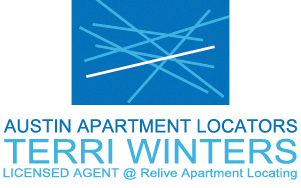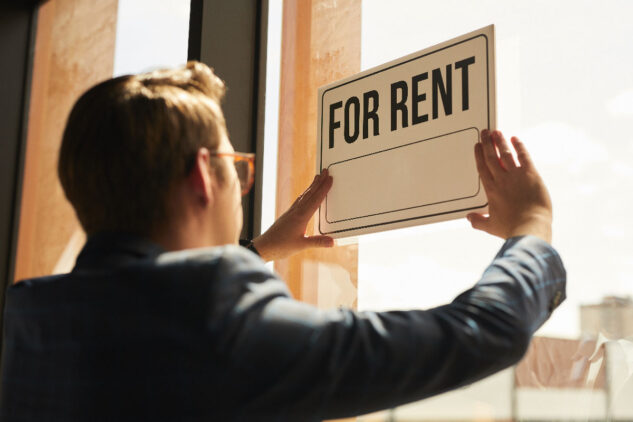How to Rent an Apartment
The first time you walk into an apartment, it’s a thrilling journey. Knowing what you’re doing is not only exciting – it’s crucial! So here are a few steps to solving the issue of leasing.
Step One: Find an Apartment Fitting Your Budget.
The idea of having a place to live seems as simple as going on Apartments.com, taking a tour, and moving in. But imagine you’ve been back to work for a while before you realize you’re in over your head. Then you realize you can’t afford your new place after eating ramen for every meal and keeping the lights off. How did you go wrong? You had a budget. Okay, you went above and beyond on those floor-to-ceiling windows. At first glance, you fell in love and knew you would have to make it work somehow.
When you look at apartments out of your budget, everything will pale compared to the one you are looking at. Keep future you from eating a year of ramen! If you can’t afford the price, do not look at the apartment. Here’s the golden rule: Make a budget before you start looking.
To figure out your budget, try the following:
- Write down the amount you get in your paycheck each month (net income is your take-home pay after taxes – etc.).
- Then subtract the above amount from your current bill (credit cards, car payments, student loans, gym memberships, etc.).
- Include any unexpected expenses, such as tires for your car or a visit to a doctor. It is best to add 10% to 15% to your bills. For example, if your current bills are $800, add $160 to that figure.
- Consider how much electricity and groceries will cost and how often you will keep the lights on and food in the refrigerator. For apartment renters, 20 percent of their income is usually spent on utilities. Groceries typically cost $250 a month for one person.
- Estimate the amount of money you’ll need for “extras” like dining out with friends, a night at the club, movies, and everything else you do.
Your rent budget comes out of the remaining amount. Look at areas where you can cut if you think it won’t be enough, but be realistic. Would you be able to give up watching the game with your best friends at the sports bar?
Step Two: Find out your credit score.
Do you know what your credit score is at this moment? If you don’t, then you can find out. You can get a free credit report at annualcreditreport.com. If you happen to have no credit or bad credit, then a property manager may refuse to rent to you or increase the security deposit amount based on your credit score. If that happens, then you may want to think about getting a cosigner.
What Is a Cosigner?
Cosigners will sign your lease with you, which will guarantee that if you do not pay your rent, they will take responsibility for that. They will not live in your apartment, but they will assume your debt. Cosigners are taking a huge commitment, so ensure that you have a detailed budget and facts when you ask someone to be your cosigner. Usually, a close friend or a family member will be a cosigner.
Step Three: Getting a Roommate or Not
Once you realize what your credit score is and after figuring out your budget, you have found that you cannot do this by yourself. If that is the case, then you might want to think about getting a roommate even though having someone to split all the costs with can lower the burden of renting and make life a little easier for money. When you live with someone, you may end up with a brand new set of problems, especially if you are not fans of their habits and quirks.
If you decide that you need to get a roommate, then your landlord may want you both to sign the lease, and they will check their credit history as well. It would help if you also kept in mind that a landlord could increase the rent on your apartment because of additional wear and tear from another person. They may also increase the security deposit, double-check the community policy regarding roommates; that way, you do not end up with surprises.
If you think that you need a roommate, then do interviews to find a roommate. Below are some questions that you should ask any potential roommate:
- Do you smoke?
- Do you want or own a pet?
- Do you have any allergies?
- How important is paying your bills on time?
- Have you ever been late on your rent?
- Are you a messy or neat person?
- Are you a night or morning person?
- What does your daily schedule look like?
- Do you have any pet peeves? If so, what are they?
- Are you an extrovert or an introvert?
- How do you feel about overnight guests?
- What do you like doing on the weekends?
- Do you prefer dining out or cooking at home?
- Do you mind sharing things, or do you want to keep everything separated?
- What do you consider to be the essential trait of a roommate?
Once you have picked a roommate, it is always best to have a roommate agreement. This can be a simple agreement that will keep you both on the same page and help keep disagreements down and outline responsibilities.
Step Four: Know What You Need and What You Want and How to Tell the Difference
If you are a new renter, you may have many questions that need to be answered. Below are a few that you can think about when you go to look at apartments:
Where Should I Look?
Location is pretty important. While you may want to pick that cozy little apartment found in the suburbs because the rent is lower, you could end up spending more on gas and time if you have to commute to work or school. If you want to have restaurants, museums, movie theaters, and another entertainment close, you need to keep that in mind.
To pay my rent, how do I go about doing it, and what happens if I don’t pay on time?
Rent is due on the same day every month. Renters may pay online via an online leasing system if their leasing agent allows it. You need to visit the leasing office every month if you do not do so. Credit cards, debit cards, electronic transfers (ACH), and personal checks are all acceptable payment methods.
Don’t hesitate to tell your landlord if you cannot pay your rent by the due date. Find out if they accept partial payments or payment arrangements. It’s always a good idea to get any agreement from the landlord in writing if there’s a dispute later. However, you need to be on time – if you are even a day late, the landlord can send you an eviction notice (notice of early termination). In the case of payment within 14 days, the notice is canceled. Your landlord may terminate your residency if you consistently fail to make rent on time.
Where can I do my laundry?
Apartments usually have either in-unit washers/dryers or an on-site laundry facility. There is a possibility of purchasing a washer and dryer in your apartment if there are connections in the building.
Are there any extra charges for the amenities I need?
Don’t be fooled by incredible amenities, such as a rooftop deck and a clubhouse – these typically come at a price. If you plan to rent out the deck or clubhouse for parties or events, make sure you inquire about the cost. Even if you don’t use these amenities, you can avoid the fees, so they shouldn’t affect your decision.
Take time to consider the pros and cons before you make a decision. Your heating and cooling expenses could soar if you live in a loft with soaring, floor-to-ceiling windows. The windows look great, no doubt. It could be more challenging to control the temperature during winter and summer, leading to higher utility bills.
What’s better than granite countertops and a fireplace? There is nothing better than having luxurious amenities. The cost of these services tends to be higher. It doesn’t make sense to spend extra money on these features if you don’t use your kitchen or aren’t home long enough to light a fire?
The perfect rental – with a yard! It’s time for backyard BBQs. Before you sign the lease, make sure you discuss the extra space with the landlord. Is it going to be maintained? Is there an additional fee for such a service? Is upkeep your responsibility? (In this case, consider the lawnmower costs, watering, etc.)
Is there Wi-Fi at the apartment?
The Internet provider that you choose may offer free Wi-Fi, but not all apartment communities do. It is sometimes a good idea to check with the leasing agent to learn if they have a preferred provider – these providers often offer discounts to keep residents in their community. Find out which service providers offer services in your area and contact them directly.
Would I be able to get a pet if I wanted one?
You should check the pet-friendliness of potential rentals even if you do not have a pet at the moment but plan to get one shortly. Be sure to inquire about pet fees, extra deposits, and pet rent when you contact the leasing agent.
Step Five: Visit the leasing office! Congratulations! You are ready.
The leasing agent will help you determine whether the apartment meets your budget and offers the amenities you require. Ensure that you have your pay stub, your reference letters, and your checkbook with you when you go.
Did you know that the average security deposit is up to two months’ rent? Apartment communities may also charge a monthly rent and a security deposit in advance. If you’re going to sit down with the leasing agent, make sure you’ve saved up three times your monthly rent, plus moving costs.
It is possible to negotiate your lease! Do your homework – similar research rentals in your neighborhood to determine the price difference. Consider renting at the end of the month if you can schedule the move flexibly. Landlords will have more flexibility then. You may also be able to negotiate better rates if you move during the winter when fewer apartments are available.
Ask your property manager if you can sign a longer lease for less rent if you plan on staying in your apartment for a long time. Rather than negotiating on rent, you may be able to ask for something else, such as a freshly painted apartment, hardwood flooring, or a better parking space.
Make sure you understand the lease. Taking the time to read it is worth the effort, even though it’s long, tedious, and filled with rental legalese. If there is anything you do not understand or want more information about, that should be mentioned in the lease.
You will receive the keys to your new apartment as soon as you sign on the dotted line! You know precisely what is in your lease agreement and have created a budget that will work well for you, which means you’ll enjoy your home for a long time – or at least until your lease expires. When you renew your lease, your rent will typically increase by 3 to 5 percent. (But that’s another story.)

